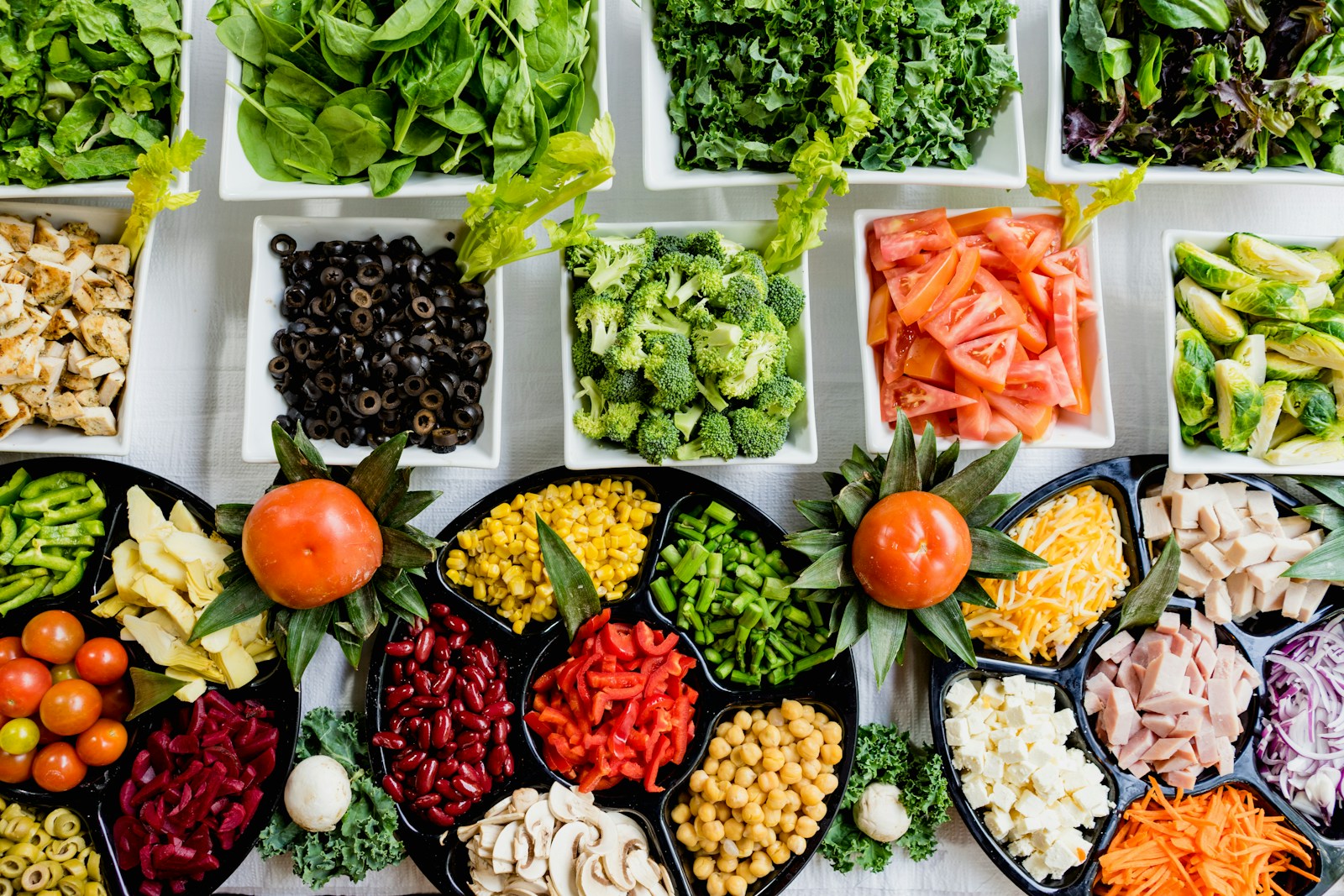Exploring the post-operative period after cervical neck surgery can be a challenging task, especially when it comes to diet. The complexity of this topic arises from the balance between consuming food that is easy on the digestive system yet sufficiently nutrient-rich to promote healing. A well-suited diet post-surgery should include specific types of food, hydration practices, as well as factoring in potential dietary adjustments due to medication. As we investigate further into this subject, we must also consider the potential eating challenges that may arise and how to efficiently maintain a balanced diet throughout the recovery phase.
Understanding Your Post-Surgery Diet
After undergoing cervical neck surgery, it’s important to comprehend the dietary adjustments that may be necessary to promote the best healing and recovery. Dietary restrictions post-surgery often include minimizing the intake of spicy, acidic, and hard-to-digest foods. These types of foods may irritate the digestive system, potentially causing discomfort or complications during your recovery period. Instead, a focus on nutrient-dense, easily digestible foods such as lean proteins, whole grains, and fresh fruits and vegetables can help support the body’s healing process.
Meal frequency also plays a vital role in post-surgery recovery. Rather than three large meals, it’s often recommended to have five to six smaller, balanced meals throughout the day. This approach can aid in maintaining stable blood sugar levels, reducing the likelihood of energy slumps, and ensuring a constant supply of essential nutrients to the healing tissues.
While each patient’s dietary needs will vary, it’s advisable to follow a balanced diet that supports overall health and promotes healing. Always consult with your healthcare provider or a nutritionist to determine the most appropriate dietary plan for your specific situation post-surgery. Remember, good nutrition is an essential part of your recovery journey.
Importance of Hydration
Adequate hydration is a fundamental aspect of recovery after cervical neck surgery. It not only aids in maintaining essential body functions but also accelerates the healing process. The following discussion will explore the role of hydration in recovery and suggest the most effective hydrating drinks for post-surgery patients.
Hydration’s Role in Recovery
Maintaining ideal hydration plays a pivotal role in the recovery process post cervical neck surgery, as it aids in tissue healing and reduces the risk of post-operative complications.
- Hydration’s Impact on Inflammation: Adequate hydration is essential in controlling inflammation. It helps in flushing out toxins, thereby reducing swelling and accelerating the healing process.
- Dehydration’s Effects on Recovery: Dehydration can lead to a slower recovery. It hampers cell regeneration, essential for healing post-surgery.
- Hydration and Nutrient Utilization: Hydration aids in nutrient absorption, contributing to overall wellness and faster recovery.
- Hydration and Energy Levels: Dehydration can lead to fatigue, affecting the patient’s mood and energy levels, which are crucial during the recovery phase.
Ensuring an excellent hydration level is therefore integral to a smooth and efficient recovery post cervical neck surgery.
Best Hydrating Drinks
What are the best hydrating beverages to consume after cervical neck surgery? Staying adequately hydrated is essential during the recovery period. Dehydration symptoms can delay the healing process and exacerbate pain. Therefore, drinking enough fluids is non-negotiable.
Water is a simple and effective way to stay hydrated. However, sports drinks can add additional benefits. They not only quench thirst but also replenish electrolytes lost during the surgery, aiding in rehydration. Sports drinks benefits include a balanced mix of sugars and salts, essential for maintaining bodily functions.
Natural options like coconut water are also excellent for staying hydrated. It is rich in potassium and other essential minerals. Nevertheless, it’s important to consult with your healthcare provider to choose the most beneficial hydrating drinks for your unique recovery needs.
Soft Foods to Include
In the aftermath of cervical neck surgery, incorporating certain soft foods into your diet can play a crucial role in recovery and healing. This phase of dietary adjustment aims at providing adequate nutrition while minimizing discomfort and potential complications.
- Dairy Intake Post Surgery: Dairy products like yogurt, cottage cheese, and milk are a good source of calcium and protein, contributing to the healing process. They are also easy to consume and digest.
- Seafood Consumption: Seafood, particularly those cooked until soft like fish and crab meat, can provide essential Omega-3 fatty acids. These nutrients have been found to reduce inflammation and support tissue repair.
- Fruits and Vegetables: Soft, cooked, or pureed fruits and vegetables are essential for their high fiber, vitamins, and antioxidants that boost the immune system and promote healing.
- Grains and Legumes: Soft-cooked grains like rice or oats and pureed legumes offer energy-rich carbohydrates and proteins, respectively, without placing undue strain on the digestive system.
Protein-Rich Foods for Healing
To bolster the healing process after cervical neck surgery, incorporating protein-rich foods into the diet is of paramount importance. Protein aids in the repair of damaged tissues and accelerates the healing of surgical incisions. As a result, a diet rich in lean meats, fish, eggs, and dairy products is highly recommended for patients who have undergone this surgical procedure.
However, for individuals following specific dietary restrictions, vegan recovery options and allergen-free diets are also available. Tofu, lentils, chickpeas, and quinoa are excellent vegan sources of protein. These plant-based proteins provide the necessary amino acids for tissue repair without the added cholesterol found in animal products.
For those with food sensitivities or allergies, allergen-free protein sources such as quinoa, hemp seeds, and spirulina can be incorporated. These foods not only provide the necessary proteins for healing but are also rich in essential vitamins and minerals that promote overall health.
Non-Irritating Fruits and Vegetables
After cervical neck surgery, incorporating non-irritating fruits and vegetables into your diet can play a pivotal role in recovery. Soft fruits such as bananas and peaches are recommended due to their easy digestibility and high nutrient content. Similarly, certain vegetables like steamed carrots or spinach can provide necessary vitamins and minerals without causing discomfort during consumption.
Recommended Soft Fruits
For best recovery post cervical neck surgery, incorporating non-irritating, soft fruits and vegetables into your diet can be highly beneficial. Fruits are a rich source of vitamins and minerals essential for healing and immune function. Special attention should be given to fruit preparation techniques, ensuring they are easy to chew and swallow.
- Bananas: They are soft and easy to digest, high in potassium and vitamin B6.
- Melons: Melons like cantaloupe and watermelon are hydrating and can be cut into small, digestible pieces.
- Papaya: This exotic fruit option is rich in vitamin C and can be pureed for smoother consumption.
- Avocado: Avocados provide healthy fats and vitamin K, and can be mashed or used in smoothies for easy eating.
These fruits are not only nutritious but also gentle on the throat and stomach.
Digestible Vegetable Options
In addition to soft fruits, incorporating easily digestible vegetables into your diet can greatly aid in recovery post cervical neck surgery. Vegetable smoothies are a fantastic method of doing so, as they allow for the intake of nutrient-rich vegetables without straining the digestive system. The benefits of these smoothies include high fiber content for gut health, essential vitamins and minerals for healing, and anti-inflammatory properties to reduce swelling.
Fermented vegetables are another excellent option. They are predigested by bacteria, which makes them easier for your body to break down and assimilate. The intake of fermented vegetables also supports gut health by providing probiotics, which can improve digestion and nutrient absorption during your recovery period. Always consult with your healthcare provider when making dietary changes post-surgery.
Easy-to-Swallow Grain Options
Ideal nutrition post-surgery can be achieved through a variety of easy-to-swallow grains; these not only provide necessary energy but also contribute to a balanced diet. Grain cooking techniques play a crucial role in making grains softer and easier to swallow.
- Rice: The most common and versatile grain. Cooking it until it’s soft guarantees it’s easy to swallow. It can be used in a variety of grain-based desserts like rice pudding, offering nutritional value and taste.
- Oatmeal: A highly nutritious grain that is naturally soft and easy to swallow. It can be prepared with milk or water and sweetened with a bit of honey or fruit for additional nutrients.
- Quinoa: Known for its high protein content, it can be cooked until it’s soft and fluffy, making it an easy-to-swallow option.
- Couscous: This grain is tiny and soft when cooked, making it easy to swallow.
These grains are not only easy to swallow but also provide the body with necessary nutrients, like fiber, protein and essential vitamins, speeding up the recovery process. To summarize, choosing the right grains and using appropriate cooking techniques can ensure a nourishing, balanced diet post-surgery.
Nutritional Supplement Recommendations
While maintaining a balanced diet through carefully selected grains is key to recovery, it’s equally important to take into account the role of nutritional supplements in supporting healing after cervical neck surgery.
Post-surgery, your body requires additional nutrients to repair tissues and promote healing. Vitamin intake, particularly of vitamins A, C, D, E, and K, along with B-complex vitamins, plays a significant role in these processes, aiding in collagen formation, bone health, immune function, and more.
Supplement safety is vital. While supplements can provide necessary nutrients, it’s important to avoid excessive intake, which can lead to toxicity. Always follow the recommended dosages and consult with your healthcare provider before starting any new supplement regimen.
Moreover, it’s beneficial to incorporate supplementation of essential minerals like calcium, zinc, and magnesium. Calcium aids in bone regeneration, while zinc and magnesium support immune and nerve functions, respectively.
Foods to Avoid Post-Surgery
Despite the importance of appropriate nutrient intake for recovery, there are certain foods that should be avoided after cervical neck surgery to prevent inflammation, discomfort, and delay in healing.
- Refined Sugars and Grains: Excessive intake of white bread, pasta, and sugary snacks can lead to inflammation, which can slow down the healing process post-surgery. These foods are also low in fiber, which can lead to constipation, a common issue after surgery.
- Avoiding Spicy Food: Spicy food can cause gastrointestinal distress, aggravating discomfort and potentially causing heartburn – a condition to avoid during the recovery period.
- Dairy Product Considerations: While dairy products provide essential nutrients like calcium and vitamin D, they can also cause bloating and constipation. Hence, moderation is key.
- Processed Foods: Foods high in sodium can lead to water retention and increased blood pressure, which can hinder the healing process. As a result, it is best to avoid processed foods like canned soups, frozen dinners, and deli meats.
Meal Prep Tips for Recovery
To aid in the swift recovery from cervical neck surgery, thoughtful meal preparation plays a significant role, focusing on nutrient-rich foods that promote healing and minimize inflammation. It is important to plan meals and snacks that not only meet daily nutritional requirements but also boost the immune system to fight off potential infections.
Recovery snack ideas include protein-rich foods like Greek yogurt, nuts, and seeds which aid in tissue repair and recovery. Fruits such as berries and citrus fruits, rich in antioxidants and vitamin C, help reduce inflammation and boost immunity. Similarly, whole grains and legumes provide necessary fiber and help maintain a healthy digestive system during recovery.
Meal prepping can be a challenging task; hence, it’s advisable to prepare meals in batches and freeze them. This not only saves time but also ensures you have a variety of nutrient-dense meals readily available. Consider incorporating immune-boosting nutrition such as lean proteins, leafy greens, and brightly colored vegetables, rich in essential vitamins and minerals.
Dietary Adjustments for Medication
Post-operative medication often necessitates certain dietary adjustments to maximize efficacy and minimize potential side effects. Some foods and beverages can affect medication interactions, influencing how your body processes these drugs. Additionally, allergy considerations must be taken into account as some food substances can trigger allergic reactions or interact negatively with your medication.
To manage these concerns, consider the following steps:
- Consult Your Doctor: Always discuss with your healthcare provider about potential food-drug interactions and allergies. They can provide personalized advice based on your medication and health status.
- Read Medication Labels: These often contain important information about foods to avoid or consume with your medication.
- Follow a Balanced Diet: A well-rounded diet can help your body process medication effectively and minimize side effects. However, certain medications may require you to avoid specific nutrients, like grapefruit with certain cholesterol medications.
- Track Your Food and Medication: Keep a record of what you eat and the medications you take. This can help identify any adverse reactions or changes in medication efficacy.
Navigating Eating Challenges
Handling eating challenges after cervical neck surgery often involves a combination of dietary shifts, managing swallowing difficulties, and ensuring nutrient-rich food choices. Each of these aspects plays an essential role in promoting recovery and enhancing overall well-being. In the following sections, we will explore evidence-based strategies to effectively address these challenges, providing a detailed guide for patients and caregivers.
Post-Surgery Dietary Shifts
Significant dietary modifications are often necessitated following cervical neck surgery, due to potential challenges linked with swallowing and digestion. Emphasis on surgical recovery nutrition is paramount, alongside the inclusion of healing spices.
- Protein-Rich Diet: To aid in tissue repair and growth, include lean meats, eggs, dairy, and plant-based proteins in your meals.
- Hydration: Keep your body well-hydrated to facilitate digestion. Water, clear broths, and herbal teas can be beneficial.
- Healing Spices: Turmeric, ginger, and cinnamon can help reduce inflammation and accelerate healing.
- Fiber: To prevent constipation, a common post-operative issue, incorporate high-fiber foods like fruits, vegetables, and whole grains.
Managing Swallowing Difficulties
How can one overcome the prevalent challenge of swallowing difficulties after cervical neck surgery? Ensuring meticulous oral hygiene is paramount. It reduces the risk of infection and aids in quicker healing. Additionally, maintaining pre-surgery nutrition is equally critical, as it can greatly influence post-operative recovery. Consuming nutrient-dense liquids and soft foods can help in meeting nutritional needs without exacerbating swallowing problems. In addition, physical therapy that includes exercises focused on strengthening the swallowing muscles can be beneficial. However, each individual’s recovery process is unique. Hence, a healthcare professional should always guide these interventions. Their expertise will ensure that the management of swallowing difficulties is both safe and effective, promoting a more comfortable and efficient recovery.
Nutrient-Rich Food Choices
While addressing swallowing difficulties is an important aspect of post-operative care, it is equally vital to contemplate the type of foods we consume, especially those that are nutrient-rich and facilitate the healing process.
- Vitamin absorption post surgery: Opt for foods high in vitamins A, C, and E, which are essential for wound healing and immune function. Include fruits, leafy greens, and nuts in your diet.
- Protein: Consuming adequate protein supports tissue repair. Lean meats, eggs, and legumes are excellent sources.
- Hydration: Keeping well-hydrated supports digestion and nutrient absorption. Aim to drink at least eight glasses of water daily.
- Immune boosting foods: Foods rich in zinc, such as seafood and whole grains, can enhance immune function and speed up recovery.
Maintaining a Balanced Diet
Maintaining a well-rounded, nutrient-rich diet is an essential aspect of recovery following cervical neck surgery. Dietary supplements may be necessary to meet the nutritional needs during this period, as the body’s demands for nutrients may increase. However, these should not replace meals but complement a balanced diet.
High quality proteins, essential fats, vitamins, and minerals play an important role in tissue repair, reducing inflammation, and boosting the immune system. Therefore, maintaining a proper calorie intake is crucial. Overeating can lead to weight gain, which can put additional stress on the neck and impede recovery. Conversely, under-eating can lead to malnutrition, slowing down the healing process.
As each patient’s nutritional needs and tolerances may differ, it is recommended to consult a healthcare professional or a dietitian. They can provide individualized advice based on the patient’s age, sex, weight, activity level, and overall health status. This professional guidance can help ensure an excellent recovery, reduce complications, and improve quality of life post-surgery.
Frequently Asked Questions
What Lifestyle Changes Should I Make After Cervical Neck Surgery?
Post cervical neck surgery, adjusting sleep patterns for best recovery and focusing on emotional wellbeing are crucial. Regular sleep cycles aid healing and managing stress can improve overall recovery outcomes. Consult your physician for personalized advice.
How Does Cervical Neck Surgery Affect My Physical Activity and Exercise Routine?
Cervical neck surgery may temporarily impact your physical activity and exercise routine. Focus on posture improvement and sleep adjustments post-surgery. Gradually reintroduce light activities under medical guidance to prevent strain and promote healing.
Are There Specific Food Allergies to Consider After Cervical Neck Surgery?
No specific food allergies are associated with cervical neck surgery. However, individual post-surgery nutritional needs should be addressed, avoiding any known allergens that could trigger inflammation and hinder the healing process.
How Does Cervical Neck Surgery Impact My Ability to Drink Alcohol?
Cervical neck surgery may impact your ability to consume alcohol due to its potential interaction with prescribed medications, which can slow recovery. Additionally, alcohol can negatively affect the body’s healing process post-surgery.
Can I Consume Caffeine After Cervical Neck Surgery?
Post-surgery coffee consumption should be approached cautiously. Caffeine’s impact on recovery can vary, potentially exacerbating symptoms like insomnia or anxiety. It’s best to consult your healthcare provider on when to reintroduce caffeine after cervical neck surgery.



